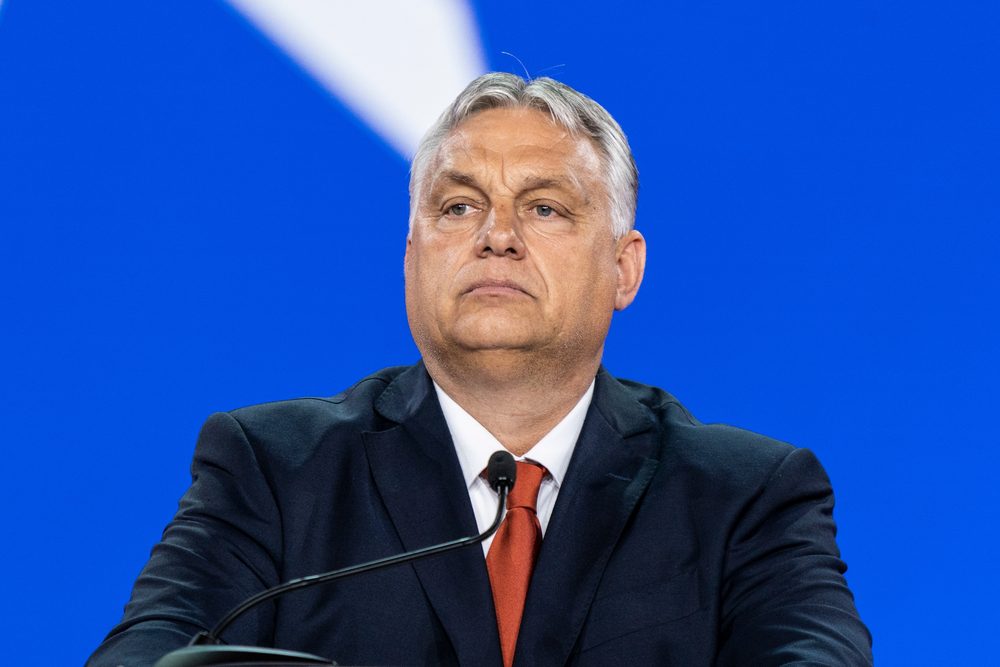
European Union’s plan to send an aid package of €18 billion to Ukraine has been delayed after the Economic and Financial Affairs Council (ECOFIN)—a committee composed of finance ministers from the bloc’s 27 member states— on Tuesday failed to reach a unanimous decision on the legislative package.
During Tuesday’s public session, prior to the planned vote, the Czech chairman of ECOFIN asked all ministers present if they agreed with the amendment to the Financial Regulation (that sets out general rules on EU spending) which would allow taking out a joint EU loan for Ukraine.
Hungary’s Finance Minister Mihály Varga then said: “We talked about it earlier. Hungary is not in favor of the amendment of the financial regulation.” At this point, the chairman said he would not put the question to a vote. “Unfortunately, we weren’t able to adopt the package as a whole,” the chair said while speaking on the meeting’s proceedings.
In the days and weeks leading up to the scheduled vote, Hungary had repeatedly signalled that it would oppose the EU’s joint loan plan, instead proposing that it would provide financial aid to Ukraine bilaterally.
Days ago, Prime Minister Viktor Orbán, while speaking about the European Union’s plan to fund the aid package said: “The question is how to help Ukraine. One proposal says that we should use the budgets of the EU member states to take out new loans together and use that money to give to Ukraine. We are not in favor of this because we do not want the European Union to become a community of indebted states instead of a community of cooperating member states.”
Alternatively, Orbán proposed that EU member states decide for themselves the amount of financial support for which they are willing to provide Ukraine, and do so out of their national budgets. Orbán suggested Hungary would consider a bilateral agreement with Ukraine that would see Hungary provide €144-169 million to Ukraine from its national budget—a sum that he noted wouldn’t harm Hungary’s national interests.
In having its colossal aid package put on hold, which Ukraine needs to cover the state’s runaway deficient and keep its ailing economy functioning amid the ongoing war, the European Commission and other EU member states will need to come up with another solution to make certain Kyiv receives the funds by the beginning of next year, the Hungarian news portal Mandiner reports.
On Tuesday, EU Budget Commissioner Johannes Hahn said that the Commission would seek alternative methods to “provide the necessary solution to Ukraine already as of January.” EU officials noted that this would involve something comparable to so-called enhanced cooperation, a legal avenue that can be used to circumvent member states refusing to sign on to the agreement.
According to a report from Politico Europe, the alternative solution, however, would need to ask member states to provide national budgetary guarantees which may require parliamentary approvals—something that could take quite a bit of time.
As a result of the vote not having taken place, three key items that were on the finance ministers’ agenda—the OECD-brokered deal to establish a 15% minimum corporate tax rate, which Hungary also opposes, the approval of Hungary’s COVID-19 recovery fund and connected €5.8 billion in grants, as well as the freezing of €7.5 billion of EU funds earmarked for Hungary—were also postponed.
As The European Conservative previously reported:
On Wednesday, November 30th, the European Commission announced that it was recommending the freezing of the funds Hungary is expecting to receive: €7.5 billion in cohesion funds from the 2021-2027 EU budget, plus €5.8 billion under the recovery plan.
Despite the Commission’s recommendation, however, whether or not Hungary receives the €13 billion ultimately lies with EU member states, which have until December 19th to vote on the issue. In order for funds earmarked for Hungary to be frozen, 15 of the 27 member states—a qualified majority—will need to vote in favor of the sanction.
